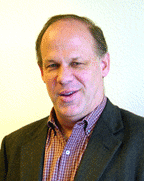By IBEW 1245 Business Manager Tom Dalzell
Facing down tough challenges is nothing new for our union – we are, after all, the people who unionized PG&E, who put wires back together in the middle of hail storms, and who stared down top NV Energy executives to secure our retirement medical benefits. But nevertheless, we find ourselves in the midst of a very challenging time.
For starters, to remedy PG&E’s role in the 2010 San Bruno fire, the California Public Utilities Commission has proposed levying a huge fine ($1.4 billion) on the company. That would squeeze them hard and could mean less funding to support our work and improve the gas delivery system. The proposed fine plus the $2.7 billion PG&E has invested in safety measures since 2010 (but did not get credit for with the CPUC) brings the total penalty to over $4 billion. PG&E didn’t help matters with its inappropriate contacts with CPUC staff regarding the fine. Should the fine go through, PG&E will have to raise equity – and negotiations take on a different character when the company is under such severe financial pressure.
Fortunately, over the summer many of you voted to extend our contract with PG&E for one year so we were not forced to negotiate during the worst months of this crisis. You did the right thing, and I am hopeful that in the next few months the fine will be reduced and finalized. Our attorneys plan to argue that investing the fine in improving safety is the best course of action, and if they are successful, it could mean more work and safer working conditions for our members.
But let’s not forget that PG&E is still facing federal criminal charges for San Bruno. The uncertainty of both the CPUC’s fine and what could happen during a criminal case is hanging over the company like a dark cloud. Again, the breathing room we secured by extending our contract should let the storm pass so that we can negotiate from a position of strength next year.
Also top of mind are the continued attacks on the Diablo Canyon plant in San Luis Obispo County. The fact that the plant supports hundreds of jobs (including 700 of our members) and provides affordable, low-carbon energy to millions of Californians has not dissuaded opponents from trying to close its doors. Last month, the same group that successfully lobbied for the closure of the San Onofre plant filed a petition with federal regulators asking for structural reviews of the facility. We are monitoring this situation closely and keeping all options on the table.
In California, we are also facing the growing trend of “Community Choice Aggregation,” where city governments choose to purchase power themselves instead of going through a utility. This is dangerous for many reasons: first because local governments have no experience purchasing or managing power, and second because unscrupulous operators are claiming that the power they deliver is ‘clean,’ when it is plainly not. Local communities who fall victim to this scam end up with out-of-state fossil fuel power that is masked with unbundled RECs (Renewable Energy Certificates). And we end up losing good, local union jobs to providers in non-union states. While we were able to convince the city of San Francisco not to go this route, Community Choice Aggregation is currently being spearheaded by Marin County. We are fighting back with a campaign to get the facts out, and will keep you posted.
In Nevada, the purchase of NV Energy by Warren Buffett’s Berkshire Hathaway has created a new set of troubles. Despite his public persona, Warren Buffett has authorized a ruthless negotiation style that has done real damage to other IBEW locals across the country. His purchase of the company means that our negotiators will go head to head with his. Although our contracts aren’t up for a few years, we proactively organized a Council of all IBEW locals with members at Berkshire Hathaway. We are sharing information and strategizing, and plan to support each other as each local heads to the table.
In addition to these specific challenges, we are also operating in a difficult political climate, with many hostile, anti-worker, anti-union city councils and animosity for public workers and pensions reaching a boiling point. So how to respond?
During lunch one day in early September I ate at my desk and spent an hour reading a collection of columns written by Ron Weakley between 1951 and 1971. The challenges Local 1245 faced in its first 20 years were very different than what we face now, but the approach that Weakley and other leaders took 60 years ago ring true today.
First, they took no prisoners – they had an absolute determination to advance the interests of our members. Second, they believed in a commitment to unity within the union. Together we are so much stronger than we are as individuals – something that is especially important to keep in mind when faced with a challenge. Third, they thought outside the box, got creative in their campaigns and strategy and kept every option open. Fourth, they used every resource available, including their personal relationships, legal, regulatory and media strategies and more. And fifth, and most importantly, they drew on the strength and wisdom of our members to move the union forward.
This is how we will meet the challenges of today. We have the best contracts in the western United States. We will keep it that way.
